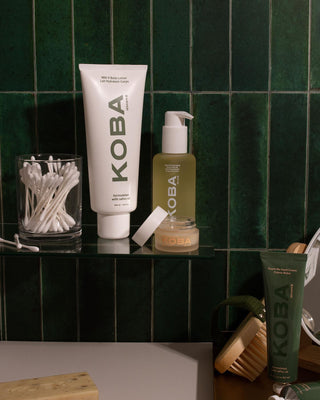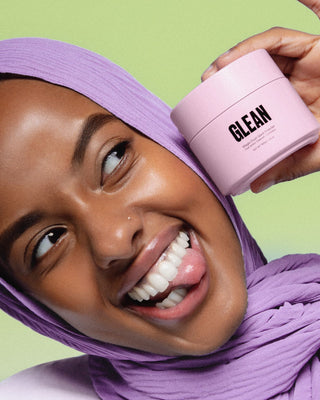One thing that was always stressed to us as children was the importance of proper hygiene. Although American media has historically painted Africans in a barbaric manner, Africans have always had their cultural rituals/regimen when it comes to skin/body care. My Ivorian mom would spend time scrubbing my younger brother and me every day in the shower with an African net sponge. The net sponge has always been a staple in my home, but now it's having an internet moment, becoming a sensation on social media, specifically on TikTok.
So what is it? The African net sponge is a fishnet-like sponge that is most known for its exfoliating properties. Its origins are in West Africa but they can be found throughout the continent. Different versions of this net sponge can also be found throughout the African diaspora like the Caribbean and Brazil. You may also hear The African net sponge be called “Sopa, Jampus, Fouo, or Akoussa” .
As an adult woman, I still use an African net sponge as a part of my daily body care routine. My family makes trips to the Ivory Coast every few years so I re-up on 5 to 10 net sponges that tend to last me a few years. This sponge is something you won't find yourself having to constantly replace. The material is built to last and is great for those who want to invest in sustainable body care essentials. The lattice structure allows air to properly flow through so it dries quickly and prevents the accumulation of bacteria. On average I switch out my sponges every 1 to 2 years.
Here are some things to keep in mind when you are on the hunt for an authentic African Net Sponge :
1. Beware of unrolled loofahs being sold as the African net sponge
The African net sponge has a lot more weight to them than your standard loofah. They are springy and stretchy while still maintaining structure. Loofahs have tinier holes that are closely bonded together. You might not have a genuine African net sponge if the net is light, flimsy, and feels easy to rip apart , and if the holes in the net are small and are structured close together.
2. Check for lattice structured knots throughout the sponge
The African net sponge is made of tied knots in between the holes, similar to the construction of fishnets. These knots are what give this sponge its deep exfoliating nature. When looking into different online brands check to see if they have different levels of roughness to ensure that you are using a sponge that won't irritate your skin and is soft enough for daily use. Also, check the manufacturing information to see if it's imported from a West African country to ensure you get the real deal.
3. Tap into the local African community in your neighborhood
African communities exist all across American cities. Look into where some local African markets are nearby. #DettyDecember is approaching, so now might be a good time to plan to hit up your girlfriends who are traveling back home and willing to bring back some for you. There are also African-owned skincare brands that have started selling them online.



